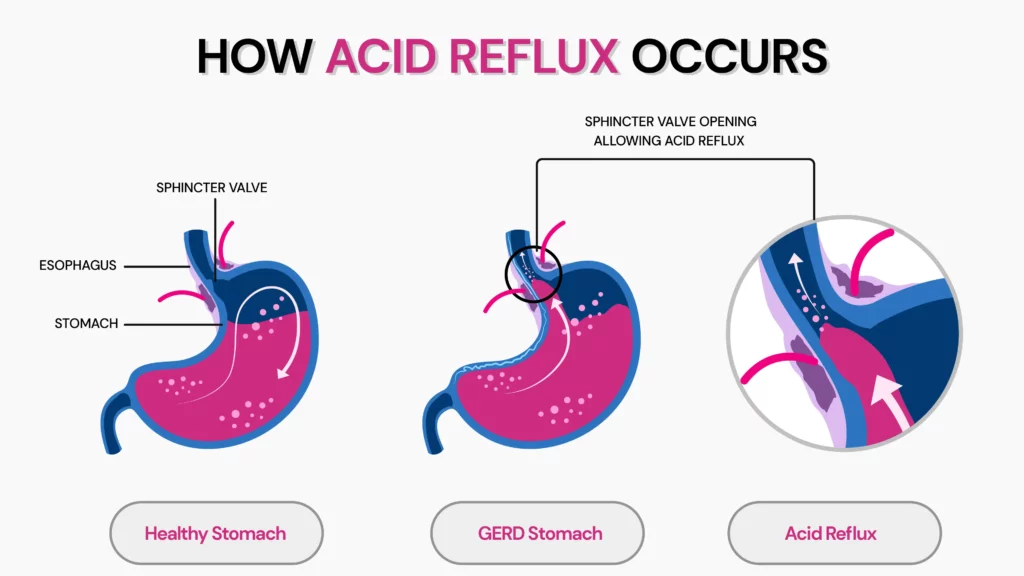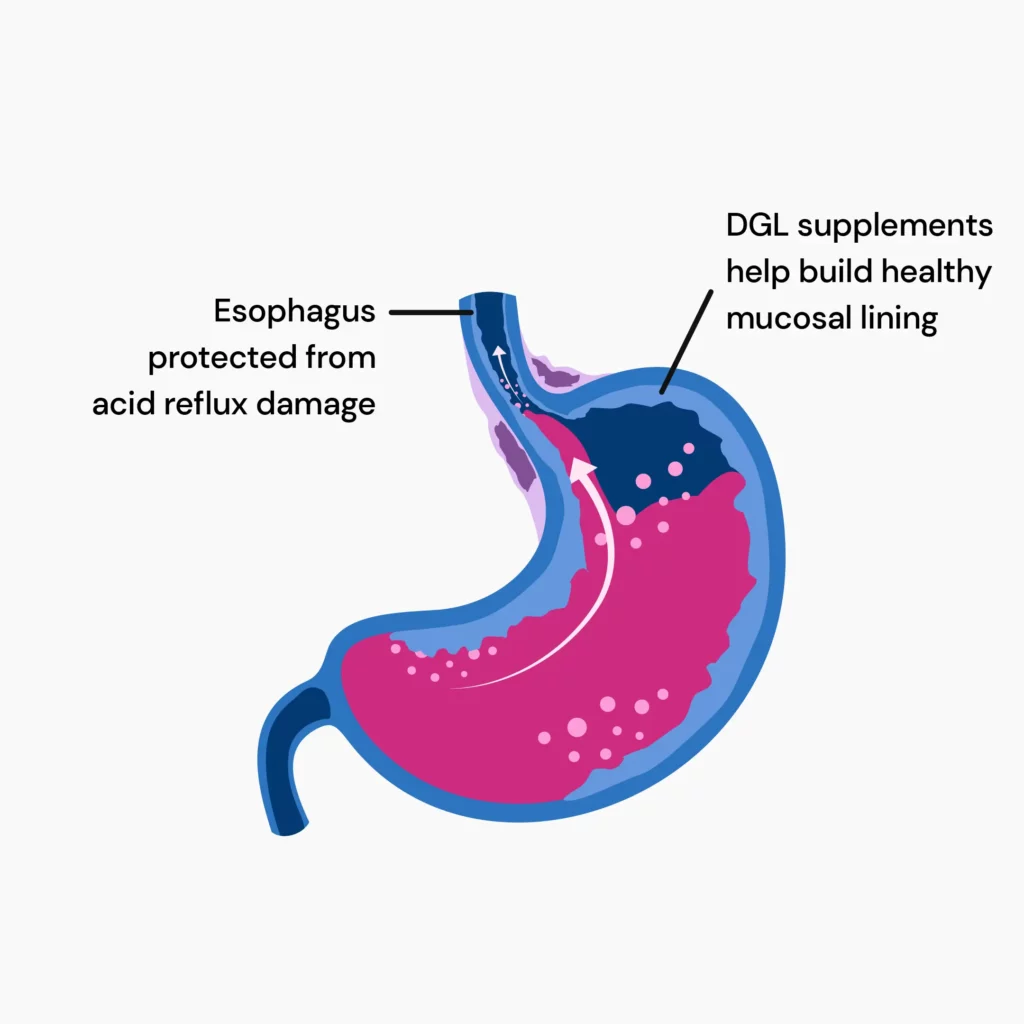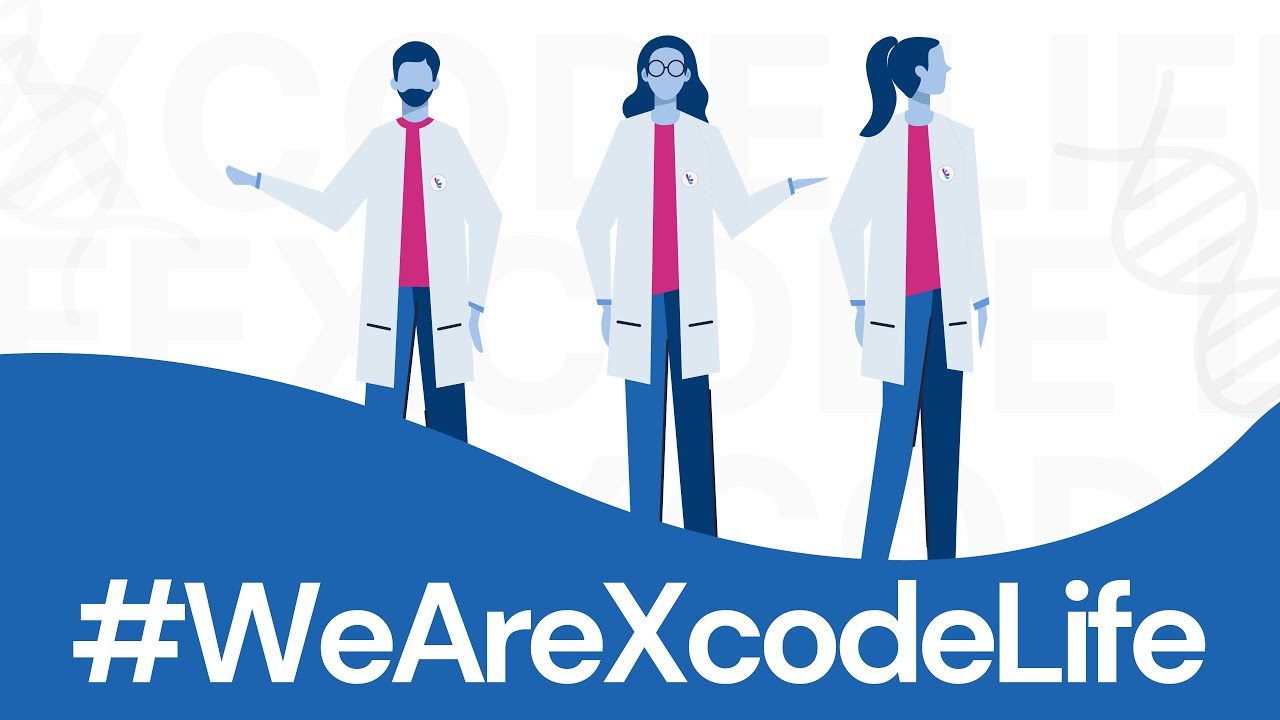Most of us are not strangers to the occasional heartburn and stomach issues. About 18% - 27% of Americans have GERD (gastrointestinal reflux disease). They occur when certain valves in the digestive tract fail to close properly, causing the food to make its way back into the esophagus. Antacids have become a staple to tackle this problem. However, overuse of antacids can cause constipation or have laxative effects. A quest for alternatives has led to the emergence of using DGL (deglycyrrhizinated licorice) to treat acid reflex. Since the FDA doesn’t regulate alternate therapies, knowing in detail about DGLs would help make an informed decision. This article discusses how DGL supplements work, as well as its safety and side effects.
Did You Know?
Many underlying health conditions like anxiety and obesity can cause acid reflux or worsen it. So, how do we safeguard ourselves from these conditions? Turns out, you can do that by understanding your genetic makeup. Some genes tend to increase your risk for many health conditions like heart disease, diabetes, obesity, etc. Understanding your genetic risk can help you take proactive measures to reduce the risk or even prevent it. Learn more.
What Is Deglycyrrhizinated Licorice (DGL)?
Licorice (Glycyrrhiza glabra) is a herb native to Asia, Southern Europe, and North Africa.
Licorice roots contain glycyrrhizin, a compound that is 30-50 times sweeter than sugar.
For this reason, licorice is used as an alternative to sugar in many foods, confectioneries, and beverages.
Licorice is an herbal medication that may treat cough, sore throat, and asthma.
Consuming more than recommended quantities of licorice containing glycyrrhizin acid may lead to high sodium and low potassium levels.
Deglycyrrhizinated licorice (DGL), as the name suggests, is licorice sans glycyrrhizin.
Most of the glycyrrhizin is removed during processing, making licorice a safer option for use.
DGL is available as a supplement and may help treat acid reflux.
How Does A DGL Supplement Work?
DGL supplements increase mucus production in the digestive tract and the esophagus.
When the mucus coats the wall of the esophagus, it gets protection against acid damage.
For this reason, these supplements are used to treat conditions like ulcers, esophageal reflux, and Barrett's esophagus.
Do DGL Supplements Help Treat Acid Reflux?
Over-the-counter and prescription GERD medications work by reducing the amount of stomach acid produced.
While this is effective, such medications may affect the digestive process over time, and when discontinued, there is a chance the symptoms may resurface.
DGL supplements strengthen the mucosa to handle regurgitation.
Mucosa is the soft tissue that lines the esophagus, stomach, intestine, and nasal cavity.
The primary role of the mucosa is to produce lubrication that protects the organs and cavities.
Stomach acid regurgitation damages esophageal mucosa, leading to symptoms like heartburn, burping, chronic dry cough, and sore throat.
DGL acts in the following ways.
- Increases blood supply to the damaged mucosa
- Helps increase the number of mucosa cells producing mucus and the amount of mucus produced by each cells
By doing these, DGL may naturally help heal the esophageal lining, bringing down the symptoms of acid reflux.


How To Use DGL Supplements?
DGL supplements are available in different strengths and as chewable tablets or gummies.
For best results, the supplement must be chewed thoroughly and mixed with saliva. This will help stimulate mucosal cell growth.
According to studies, DGL capsules aren’t as effective as chewable forms.
Talk to your doctor to understand the correct dosage for you.
The Benefits
- DGL supplements can help strengthen the mucosal membrane and reduce acid reflux symptoms.
- A 2017 study reports that DGL supplements may help with gastric and intestinal irritation and act better than regular antacids.
- A 2014 study reports that licorice supplements may help handle oral mucositis (ulcers of the oral mucosa), an unpleasant side effect of radiotherapy.
- A 2021 study analyzed the effects of DGL on bleomycin-induced oxidative lung damage in rats. Bleomycin is a drug to treat cancers. According to the study, DGL may help improve the antioxidant defense mechanism in the body and protect the lungs from oxidative damage.
The Best Time To Take It
The best time to take DGL supplements would be 20 minutes before dinner.
How Long To Take It
You can take DGL supplements for 2-4 months, depending on the severity of GERD.
Like all supplements, discontinue after one course to observe changes in the body.
When you decide to restart the supplement, please inform your doctor.
Side Effects And Risks Associated With DGL Supplements
Consuming more than 3g licorice root/day for more than six weeks may cause sodium retention, low potassium, and hypertension.
Consuming more than 100mg of pure glycyrrhizin/day would also lead to similar symptoms.
DGL is typically licorice with most of the glycyrrhizin removed.
However, these supplements may not mention how much glycyrrhizin they could remove during the processing. So, excess consumption may still be harmful.
Also, the Food and Drug Administration (FDA) doesn’t regulate DGL supplements. So, finding a seller who promises pure and unadulterated DGL can be challenging.
People with the following conditions should avoid DGL if possible.
- Hypertension
- Renal conditions
- Heart conditions
Pregnant or lactating women must talk to their doctor to understand the risks of DGL before starting them.
Natural Alternatives To DGL Supplements For Acid Reflux
Here are some other natural alternatives to DGL supplements for acid reflux.
D-Limonene
Most of the citrus peels contain a substance called limonene. The chemical form of the same is called d-limonene. D-limonene has gastric acid-neutralizing properties and may be effectively used for heartburn and acid reflux.
Chamomile
Chamomile, a type of herb, may effectively bring down inflammation and reduce the symptoms of acid reflux when consumed before meal times.
Ginger
Ginger, a common kitchen spice, may help reduce various symptoms of GERD, including bloating, burping, and gastritis. Studies report that ginger may also be used to treat gastric ulcerations.
Papaya
Papaya contains an enzyme called papain that may help improve digestion. A 2023 study reports that ripe papaya may be beneficial in treating signs of GERD.
Summary
- Licorice is a herb known for its various medicinal properties and contains glycyrrhizin, a substance that can be toxic in large quantities.
- Deglycyrrhizinated licorice (DGL) is licorice with most of the glycyrrhizin removed and is an alternative medicine to treat GERD and chronic acid reflux.
- Acid reflux causes damage to the mucosal lining of the esophagus. DGL supplements strengthen the mucosal lining by increasing mucus production and number of mucosal cells.
- DGL supplements are available as chewable tablets or gummies. Research suggests that it is best to take them 20 minutes before dinner.
- Excess consumption of licorice may lead to sodium retention, hypertension, and decreased potassium levels. Please talk to your primary physician before starting any new supplement.
References
https://www.ncbi.nlm.nih.gov/pmc/articles/PMC7348626/
https://www.ncbi.nlm.nih.gov/pmc/articles/PMC1412184/
https://www.ncbi.nlm.nih.gov/pmc/articles/PMC3498851/
https://www.ncbi.nlm.nih.gov/books/NBK441938/
https://onlinelibrary.wiley.com/doi/abs/10.1111/ajco.12295
https://pubmed.ncbi.nlm.nih.gov/18072821
https://www.ncbi.nlm.nih.gov/pmc/articles/PMC10458865/






